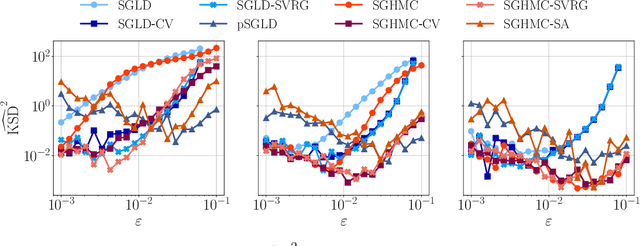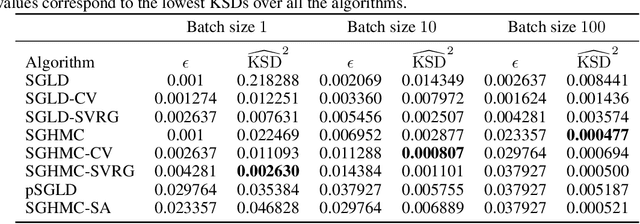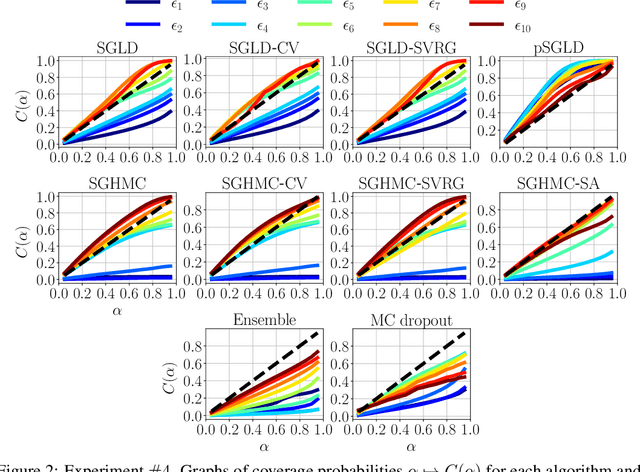Quantitative performance evaluation of Bayesian neural networks
Paper and Code
Jun 08, 2022



Due to the growing adoption of deep neural networks in many fields of science and engineering, modeling and estimating their uncertainties has become of primary importance. Various approaches have been investigated including Bayesian neural networks, ensembles, deterministic approximations, amongst others. Despite the growing litterature about uncertainty quantification in deep learning, the quality of the uncertainty estimates remains an open question. In this work, we attempt to assess the performance of several algorithms on sampling and regression tasks by evaluating the quality of the confidence regions and how well the generated samples are representative of the unknown target distribution. Towards this end, several sampling and regression tasks are considered, and the selected algorithms are compared in terms of coverage probabilities, kernelized Stein discrepancies, and maximum mean discrepancies.
 Add to Chrome
Add to Chrome Add to Firefox
Add to Firefox Add to Edge
Add to Edge